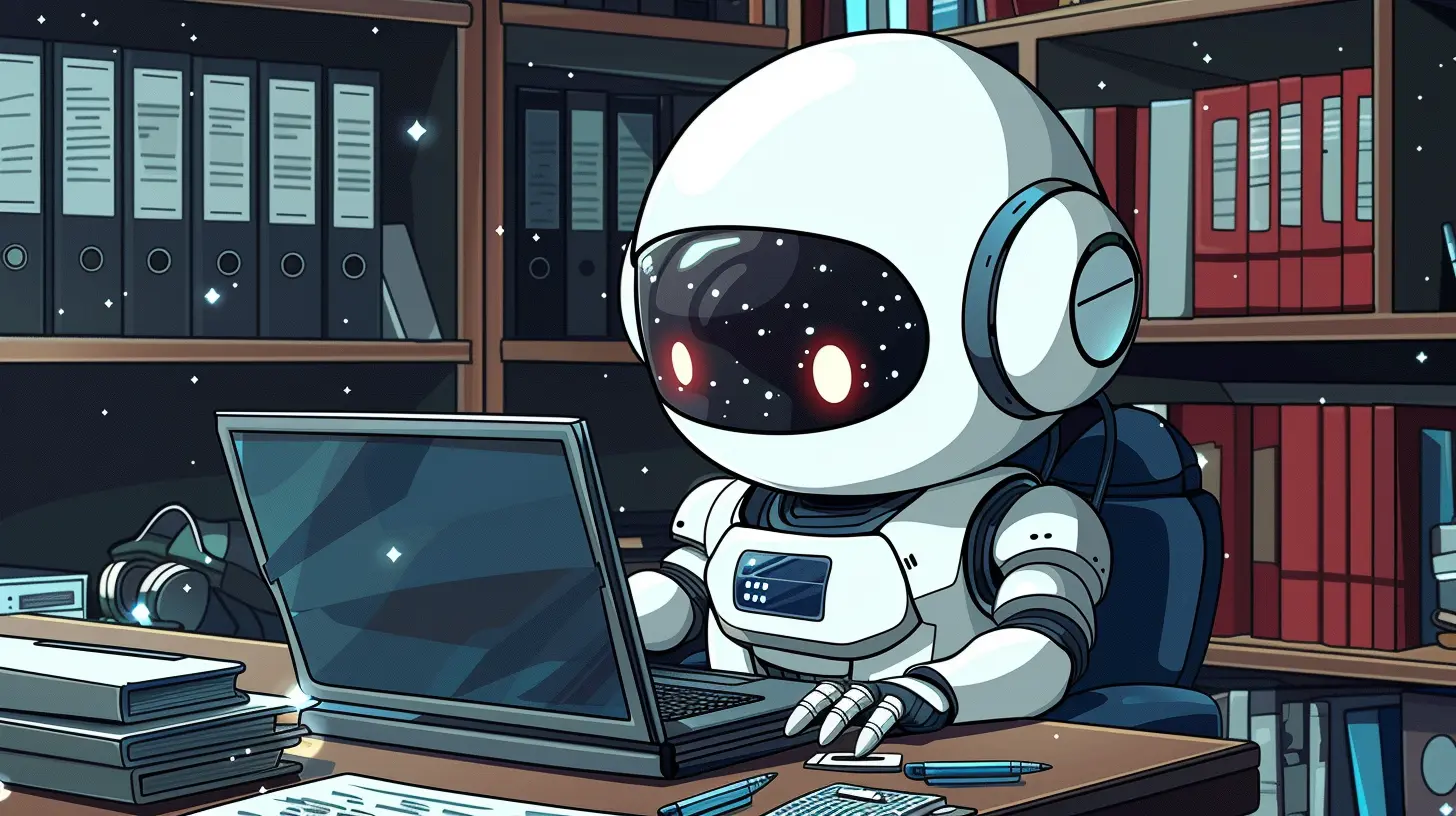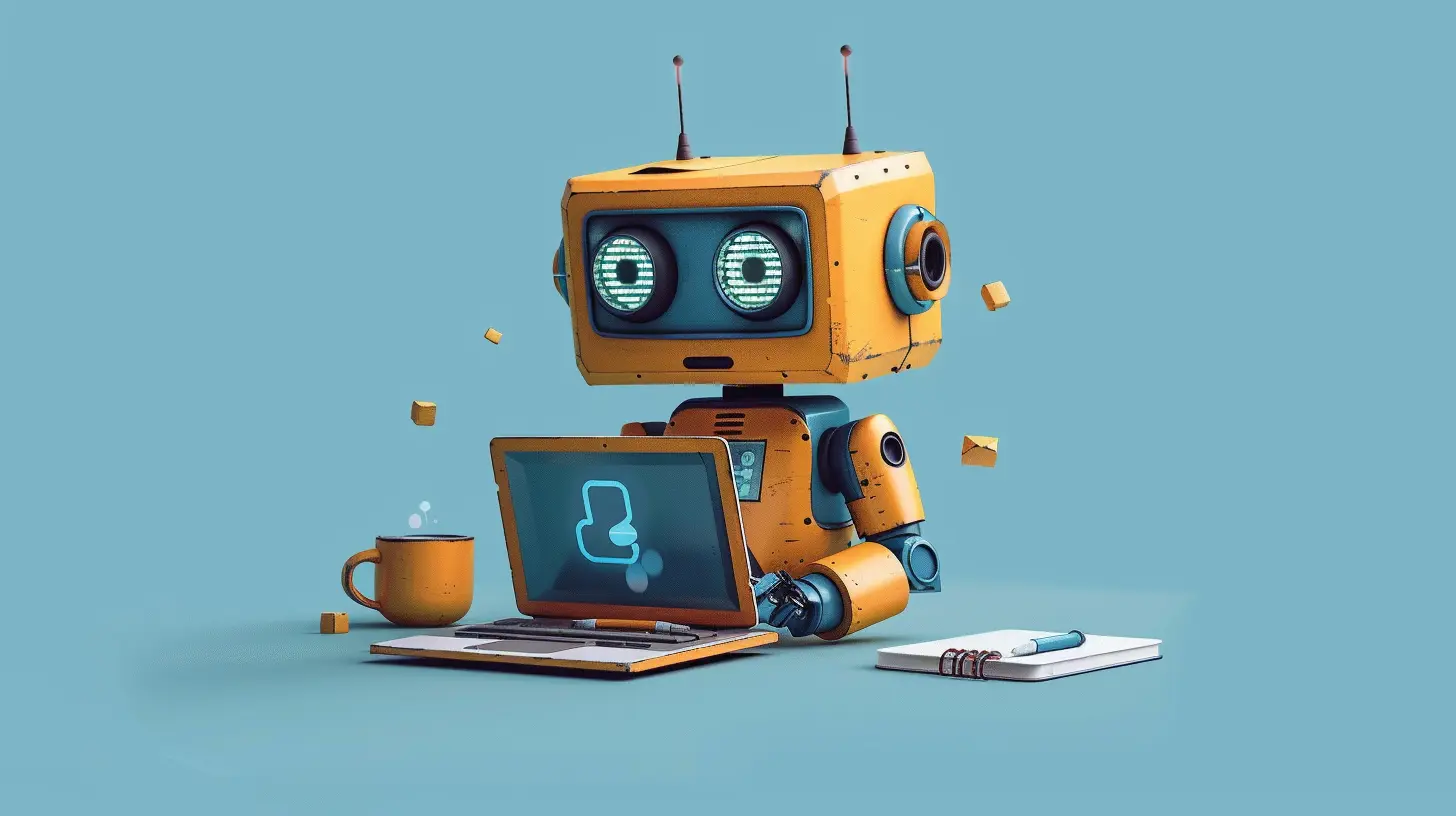The Rise of AI in Modern Programming Languages
15 October 2025
Artificial Intelligence (AI) is no longer just a buzzword—it’s the real deal, reshaping how we interact with technology on a daily basis. From streamlining customer service through chatbots to revolutionizing how code is written, AI is rapidly becoming the secret sauce in modern programming languages. But what does this really mean for developers, tech enthusiasts, and the future of software development?
Well, stick around because we’re diving deep into the fascinating world of AI-powered programming. Whether you're a seasoned coder or someone who just wants to know what all the hype is about, this article has something for you.
A Quick Look Back – How We Got Here
Let’s take a moment to appreciate where we started.Once upon a time, programming was like solving a puzzle with no picture on the box. Developers had to write everything from scratch. Think about it—if you wanted a computer to say "Hello, World!”, you had to deal with memory management, allocate variables manually, and hope for the best.
Fast forward to today: modern programming languages like Python, JavaScript, and even newer ones like Rust or Julia have abstracted much of that complexity. Now, thanks to artificial intelligence, we’re seeing another giant leap forward.
So, What’s AI Got To Do With Programming Languages?
You might be wondering—how exactly is AI influencing programming languages? Good question.AI is not creating new languages (at least not yet!), but it's making existing ones stronger, smarter, and more intuitive. Instead of just being a tool that completes our syntax, AI is now helping write logic, find bugs, optimize performance, and even teach us how to code better.
Let’s break it down.
AI-Powered Code Completion – It’s More Than Autocomplete
You've used autocomplete in your IDE, right? You type “funct…” and boom, it suggests “function”. That’s basic. AI has taken that to the next level.Tools like GitHub Copilot (powered by OpenAI’s Codex) are making developers' lives so much easier. How? By suggesting entire code blocks, refactoring code, and understanding the intention behind your code snippet. It’s like having a co-pilot beside you at all times.
Imagine asking, “Hey AI, can you write me a function that sorts a list of dictionaries by date?”—and it just does. No Stack Overflow. No hours of Google searches. Just results.
Bug Hunting Just Got Smarter
Raise your hand if you’ve ever spent hours trying to crush a bug only to realize it was a missing semicolon. (Guilty 😅)AI is stepping in here too. Modern programming environments equipped with AI can now catch logical errors, flag inconsistent patterns, and even suggest fixes—before you hit compile.
Think of it as having a debug wizard sitting in your IDE, whispering: “Hey, line 42 looks shady. Wanna check that loop again?”
AI is Changing How We Learn Programming
It’s not just about writing better code. AI is flipping the script when it comes to learning how to code in the first place.Interactive learning platforms now use AI to offer personalized learning paths, adaptive practice sessions, and real-time feedback. Instead of watching endless video tutorials or reading dry documentation, you could chat with an AI tutor that explains recursion using pizza slices or helps you practice object-oriented programming by designing an RPG game.
Learning code is no longer one-size-fits-all. AI makes it feel like learning from a mentor.
Programming Languages are Adapting to AI Workflows
Let’s get a little technical. While AI is enhancing how we code, programming languages themselves are evolving to support AI-powered development.Languages like Python are becoming go-to tools for AI development because of their simplicity and availability of libraries like TensorFlow, PyTorch, and scikit-learn. But it doesn’t stop there:
- JavaScript is seeing AI use in web interfaces and TensorFlow.js.
- Rust is getting popular in AI for high-performance applications.
- Julia is being adopted in data-heavy AI tasks because of its speed and numeric accuracy.
These languages are integrating better with AI tools, APIs, and libraries so developers can build, train, and deploy AI models more efficiently.
The Rise of AutoML And No-Code AI
AutoML (Automated Machine Learning) is another game changer. It takes a lot of the grunt work out of machine learning—like data preprocessing, feature selection, and model tuning—and handles it automatically.Here’s where modern programming languages come in. They provide the flexibility to integrate these AI models, even if you’re not a data science expert. Add to that, drag-and-drop interfaces and visual programming tools enabled by AI, and you’ve got a world where coding becomes more accessible to everyone.
Guess what? You don’t always need to write hundreds of lines of code to build something powerful anymore.
Human and Machine – A New Kind of Developer Friendship
Some folks fear that AI will replace developers altogether. Let’s be real for a sec—that’s not happening anytime soon.What’s really happening is a transformation of roles. Think of AI as your coding buddy who never gets tired, never sleeps, and never forgets a semicolon. Instead of replacing you, it enhances your capabilities.
You still make the decisions. You still bring creativity, logic, and vision. AI just helps you get there faster and with fewer headaches.
Real-World Impact – Where Is All This Headed?
Let’s connect the dots to real-world changes.1. Faster Development Cycles
Companies are now pushing updates faster than ever. With AI automating boring stuff like testing, debugging, and even deployment, dev teams can focus on innovation rather than maintenance.2. Smarter Applications
AI isn't just behind the scenes—it’s also embedded in the apps we build. Recommendation engines, image processors, and voice recognition features are being coded natively in modern languages with the help of AI.3. More Inclusive Coding
AI is lowering the barrier to entry. Visual programming and natural language-to-code platforms mean even non-tech folks can get involved in tech solutions.Challenges We Can’t Ignore
Now, let’s not get carried away. AI in programming isn’t all sunshine and rainbows.- Bias and Ethics: If AI learns from biased data, it’ll produce biased code. Period.
- Over-reliance: Depending too heavily on AI can make developers rusty.
- Security risks: An AI that auto-generates code might unknowingly introduce vulnerabilities.
The key is balance. AI should assist, not dominate. Developers need to remain critical thinkers, not just code supervisors.
The Future – Where Do We Go From Here?
Honestly, we’re just scratching the surface. With things like quantum computing, AI-native programming languages, and even AI systems writing other AI systems, the future looks wild.Will we see a day where anyone can build complex software just by talking to an AI? Maybe. Will developers become more like software architects guiding AIs to write code? Probably.
We’re heading into an era where creativity and innovation take center stage—and AI helps with the heavy lifting.
Final Thoughts – Embrace the Change
Here's the deal—AI isn't something to fear. It’s something to ride like a wave.Modern programming languages are evolving not just for machines to understand but also for humans to be more expressive, efficient, and creative. And AI is the turbocharger making that happen.
If you’re a developer, start playing around with tools like GitHub Copilot or Kite. If you’re just getting started, don’t be intimidated—AI might make your journey easier than ever.
This isn’t just the future of coding. It’s coding reimagined.
all images in this post were generated using AI tools
Category:
ProgrammingAuthor:

Adeline Taylor
Discussion
rate this article
1 comments
Darby Mendoza
Exciting insights! AI truly transforms programming languages today.
October 25, 2025 at 5:02 AM

Adeline Taylor
Thank you! I'm glad you found the insights exciting—AI is indeed reshaping the landscape of programming languages in fascinating ways!


